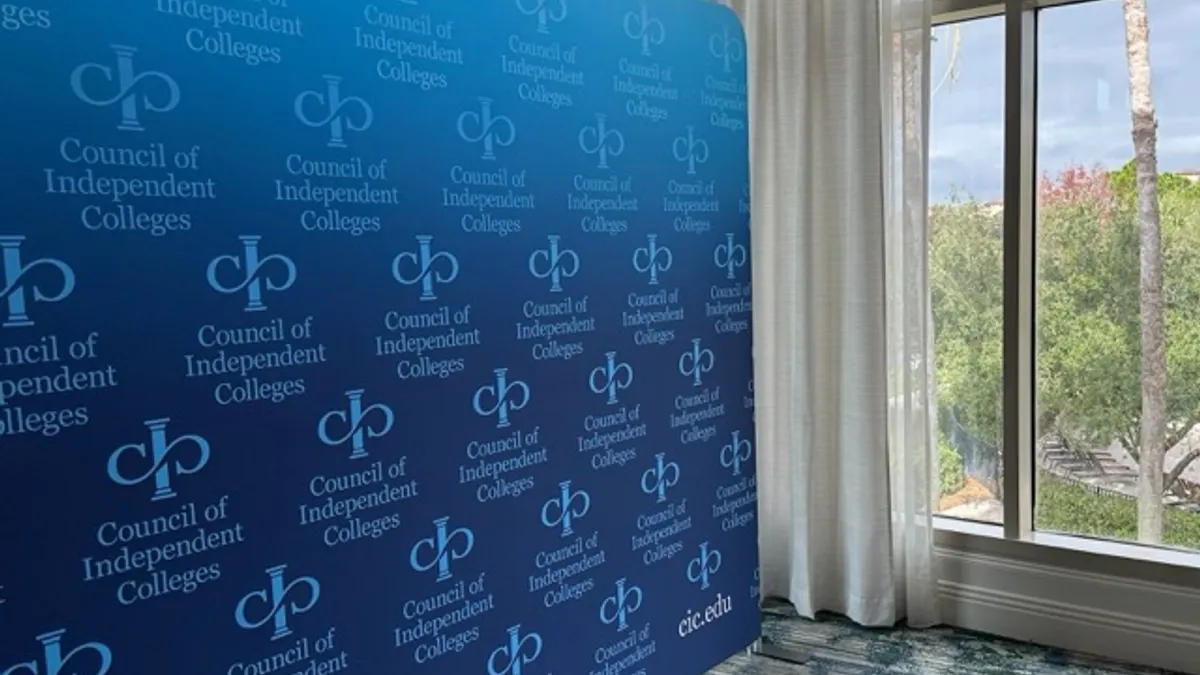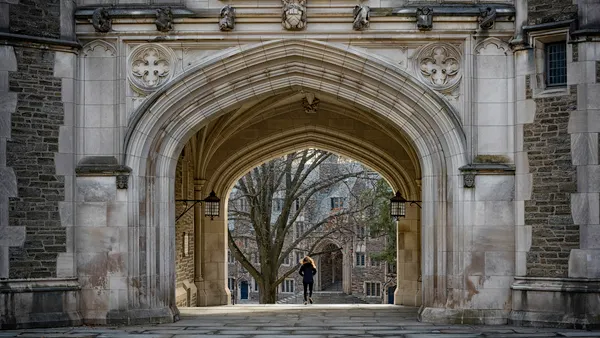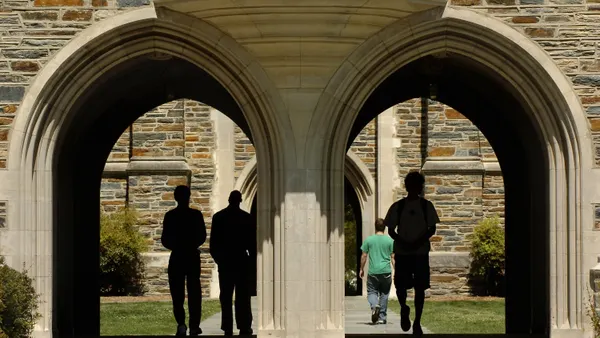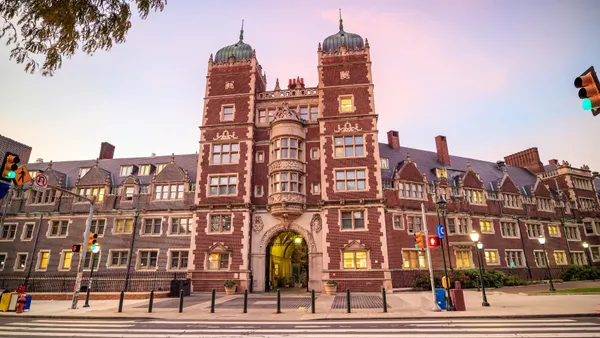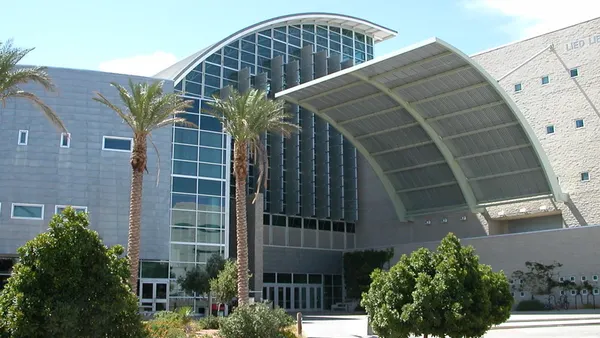Dive Brief:
- Eight historically Black colleges and universities have received a total of $387 million in unrestricted donations from billionaire philanthropist MacKenzie Scott since mid-October.
- On Sunday, Howard University, in Washington, D.C., revealed it had received an $80 million gift from Scott, with $17 million earmarked for its medical school. The following day, Spelman College, a women's HBCU in Georgia, said Scott had donated $38 million.
- Both colleges, along with most of the six other HBCUs, previously received multimillion dollar donations from Scott during her first round of higher education giving in 2020. Each described their gift as one of the biggest — if not the largest — in their history.
Dive Insight:
In 2019, the same year Scott divorced Amazon founder Jeff Bezos, she signed the Giving Pledge, a pact directed at the world's wealthiest people to donate more than half their wealth.
"I have a disproportionate amount of money to share," Scott, one of the richest women in the world, wrote in her pledge statement at the time. "And I will keep at it until the safe is empty."
She still has quite a ways to go. As of this week, Bloomberg estimated Scott's net worth at $42 billion — up from $39.4 billion last November.
Scott is now in the midst of another significant round of donations, and the notably private donor acknowledged the attention it would attract in a rare online statement last month.
"When my next cycle of gifts is posted to my database online, the dollar total will likely be reported in the news," she said in an Oct. 15 blog post. But she characterized that amount as "a vanishingly tiny fraction" of the hundreds of billions of dollars in annual charitable giving in the U.S. each year "that we don’t read about online or hear about on the nightly news."
Her most recent spate of HBCU donations include:
- $80 million to Howard University, in Washington, D.C.
- $63 million to Morgan State University, in Maryland.
- $50 million to Virginia State University.
- $42 million to Alcorn State University, in Mississippi.
- $38 million to Spelman College, in Georgia.
- $38 million to Clark Atlanta University, in Georgia.
- $38 million to Alabama State University.
- $38 million to The University of Maryland Eastern Shore.
Scott also donated $70 million in September to UNCF, the largest private scholarship provider for minority students in the U.S. The organization, which counts 37 private HBCUs as members, said the money would go to bolstering the long-term financial health of those colleges.
In 2020, Scott donated over $800 million to colleges, focusing much of the funding on HBCUs. In addition to their high-dollar value, her gifts stood out because they were unrestricted, and she did not appear to have a personal relationship with the recipients.
The Council for Advancement and Support of Education found that unrestricted contributions to surveyed colleges increased by nearly a third in fiscal 2021 compared to the year before, attributing much of that growth to Scott.
By early 2023, she had donated at least $1.5 billion to roughly six dozen colleges, with an emphasis on minority-serving institutions like HBCUs.
Foundations disproportionately give less to HBCUs compared to similar non-HBCUs, and public HBCUs have historically been underfunded by the government.
From 2015 to 2019, foundations donated a combined $5.5 billion to the eight Ivy League institutions, compared to $303 million for 99 HBCUs, according to a 2023 study. That worked out to the average Ivy League institution receiving 178 times more foundation funding than the average HBCU.
And a 2023 analysis from the Biden administration found that land-grant HBCUs in 16 states missed out on over $12 billion from 1987 to 2020 due to state underfunding.
Five years out from Scott's first donations, research suggests those funds may help boost enrollment and retention.
A 2021 analysis of the 23 HBCUs that received a total of $560 million from Scott in 2020 found that their median new student enrollment was more than 300 students higher than HBCU counterparts that did not receive funding. Their retention rates were an average of 15% higher as well.
Colleges have reported using the money in a variety of ways.
Spelman, for example, received $20 million from Scott in 2020. Of that, $11 million went to the college's endowment, and $1.1 million went to its Social Justice Scholars program, a spokesperson told The Atlantic Journal-Constitution. In addition, every student that year received a $3,500 scholarship. The remainder of the gift went to technology upgrades, academic programming and other improvements, the spokesperson said.
Beyond adding to a college's coffers directly, a large dollar donation can help raise an institution's profile.
Clark Atlanta saw a "catalytic impact" to its fundraising efforts thanks to Scott's $15 million donation in 2020, college President George French Jr. told AJC before the latest round of donations became public.






